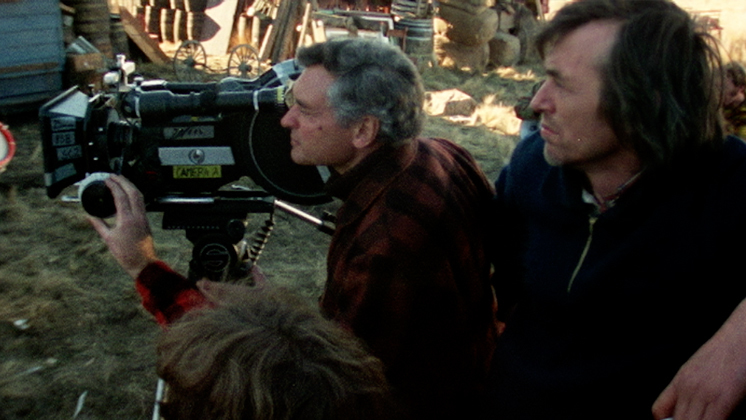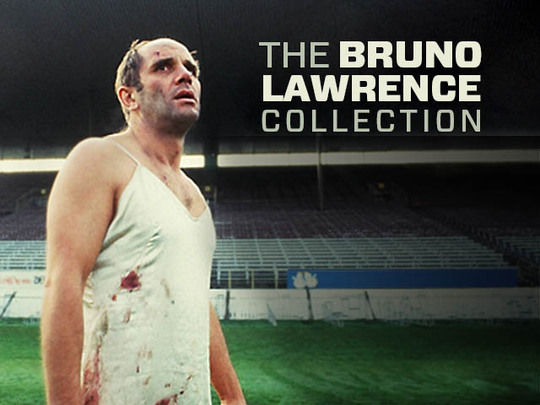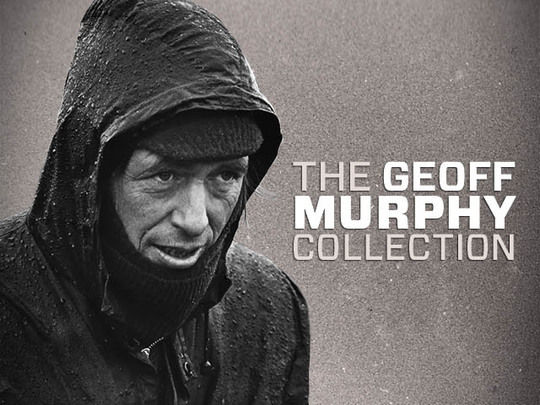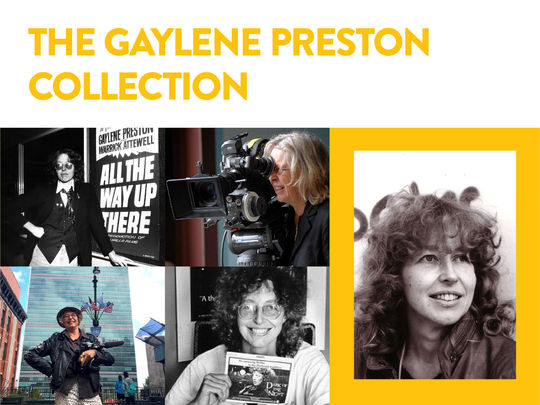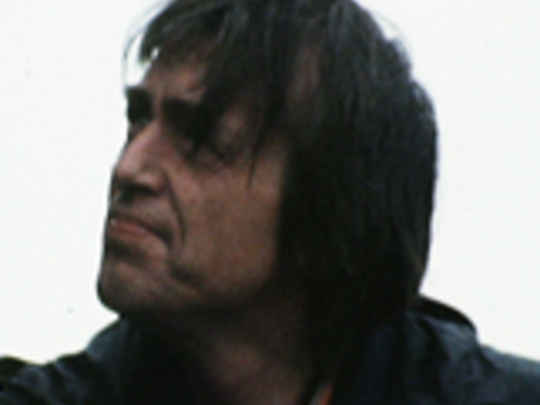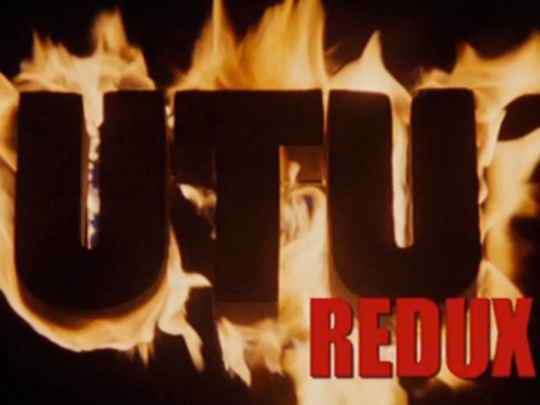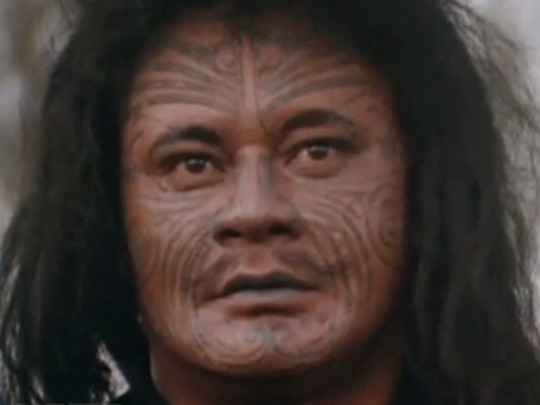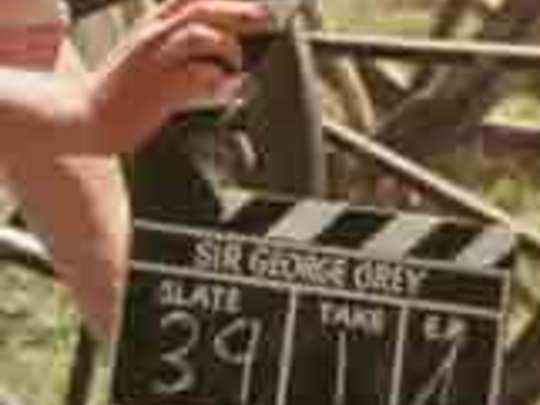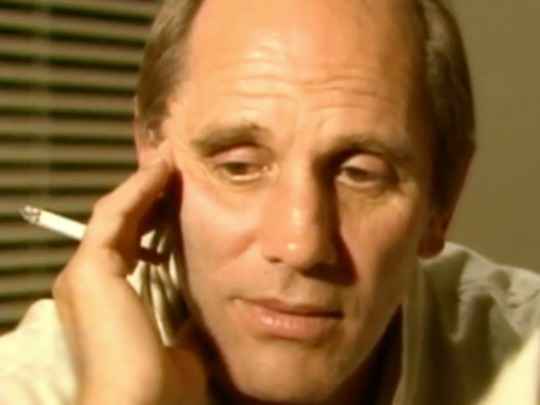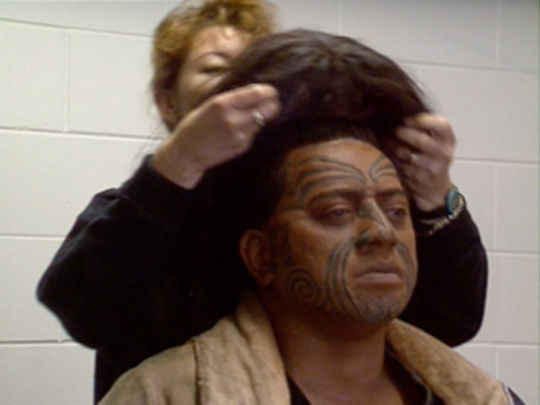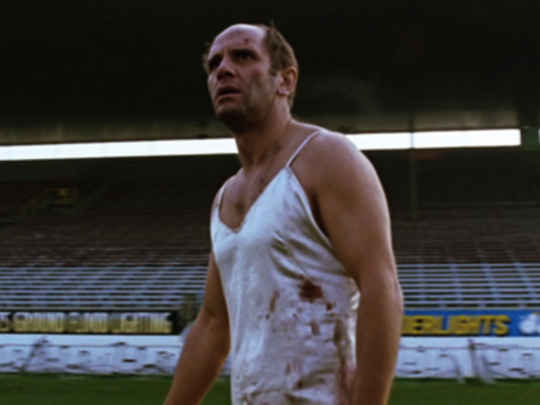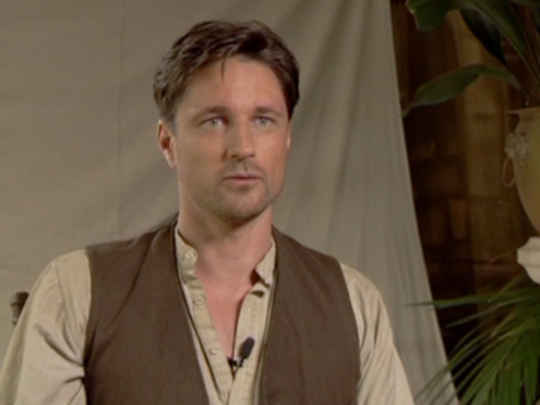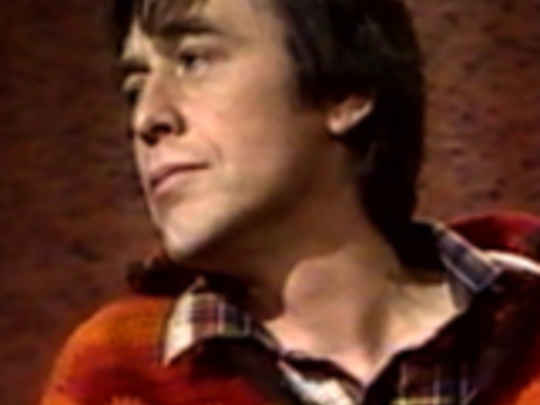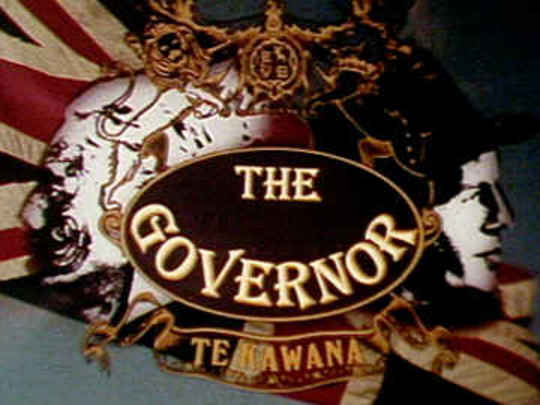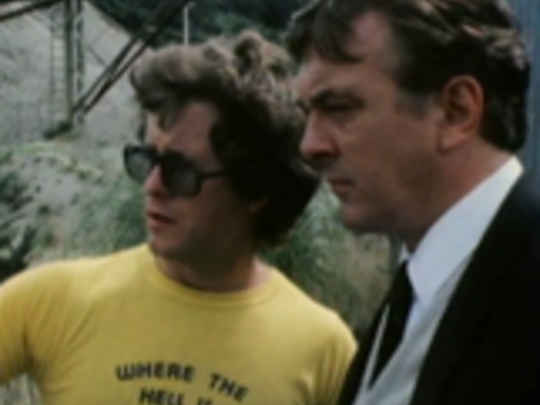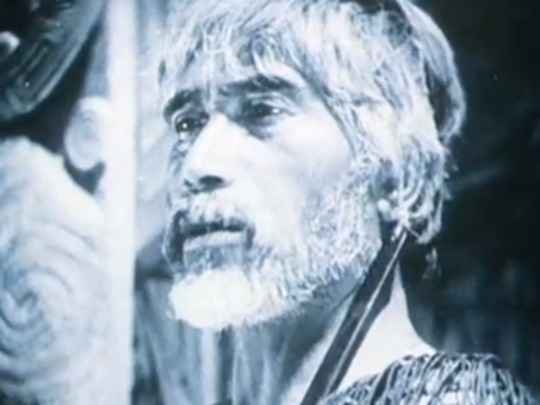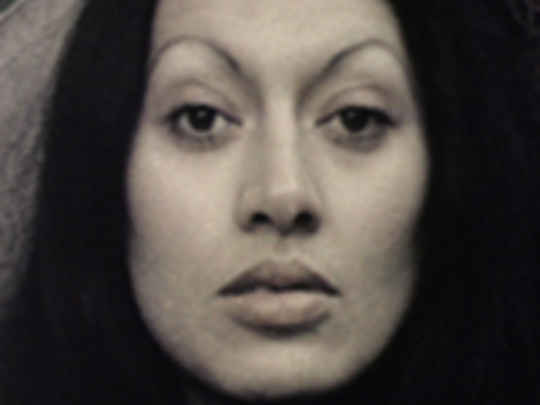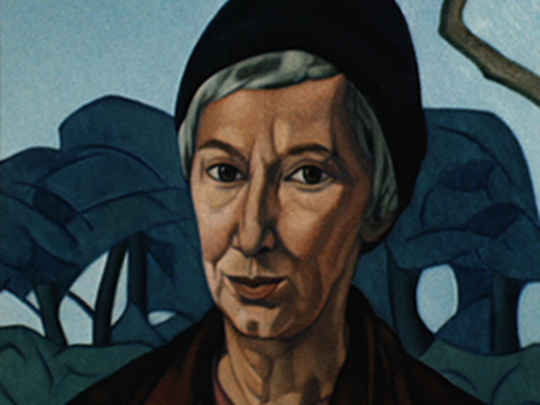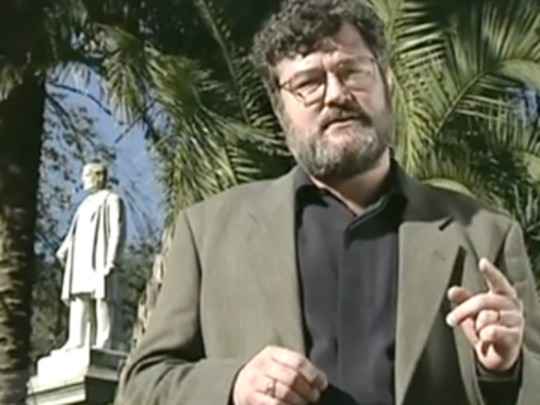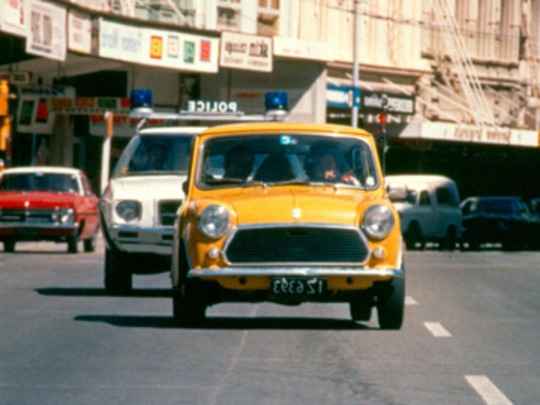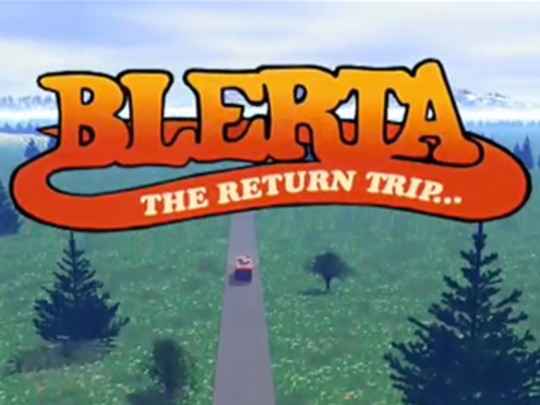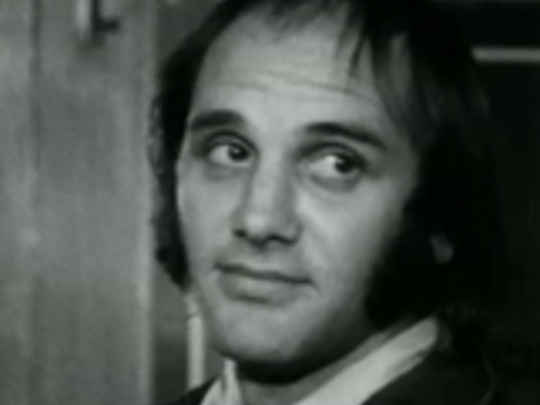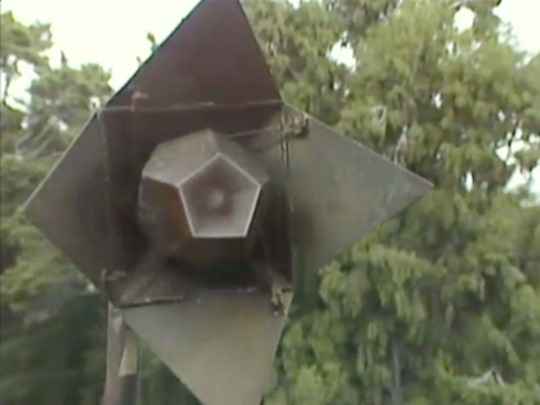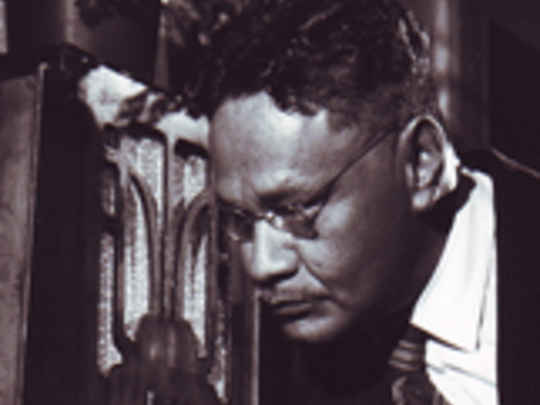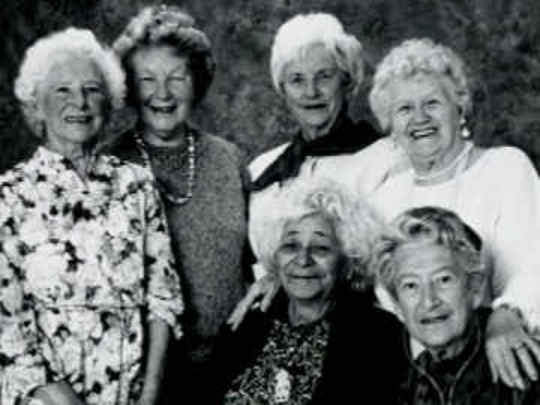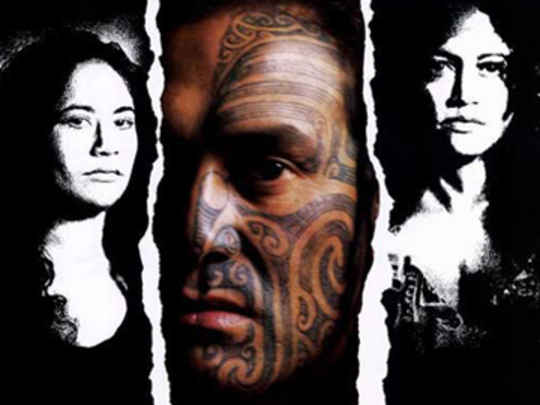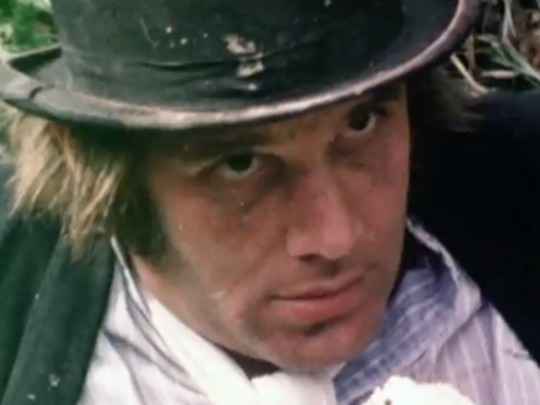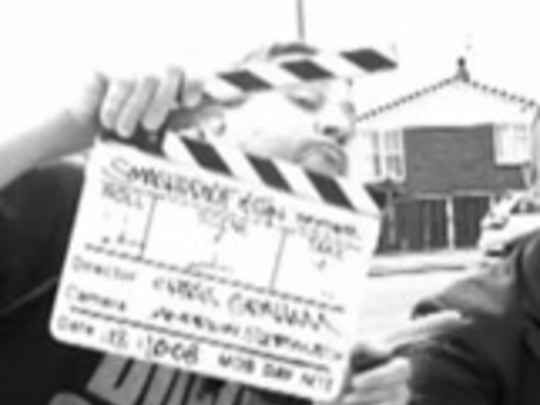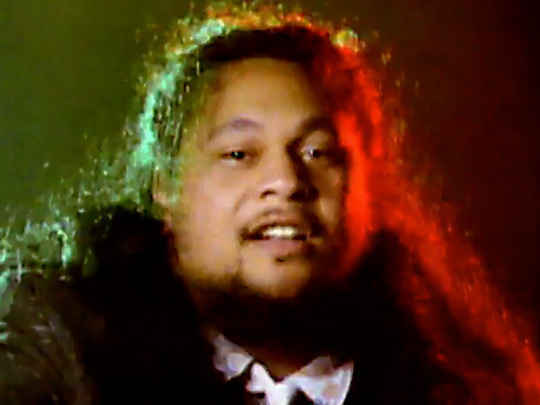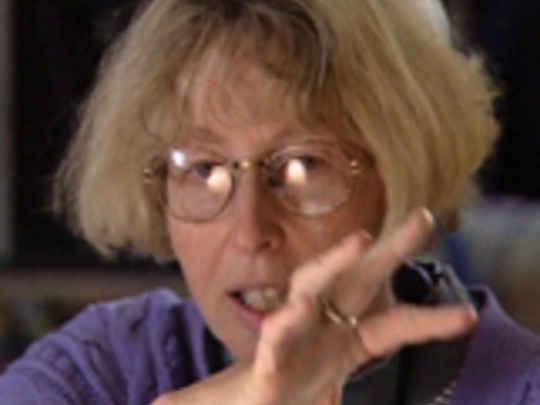Utu made extremely complex statements about the absurdity of trying to alter people's political and philosophical thinking by shooting bullets into their heads.
– Geoff Murphy, in a 1985 Onfilm magazine interview by his brother Roy
The thing I like about filmmaking is that it gives you the opportunity to do things like blow up sheds and throw pianos off balconies.
– Director Geoff Murphy, on location during the piano destruction scene
We'll work out the choreography of the battle. We'll ... practise it and practise it until we run it, until we get everyone running in the right place, and the cameras all in the right place at the right time ... So it’s like football innit? You set up the event and cover it, you know: go to close-up when they put the ball in, cut wide as they run along …
– Director Geoff Murphy prepares to shoot a battle scene
OK we're about ready to go. No talking. No looking at the camera.
– An assistant director instructs the assembled extras playing soldiers
...there's no point showing it if you show it wrong.
– Director Geoff Murphy negotiates with cultural advisor Joe Malcolm over the best way to film a tangi
The main thing is DON'T Panic!
– Sign on the wall of the Utu production office
What's manifested in this film is what's happening today. We have that: we have Māori fighting Māori, we have Māori fighting Pākehā, we have Pākehā fighting Pākehā in New Zealand. And it's very hard to draw the line in New Zealand in terms of racial conflict. Because it's a lot more than that; it goes a lot deeper than that. But its very convenient too, if you want to look at it that way, to look at it in terms of colour...
– Utu actor and casting director Merata Mita, early in this documentary
...this matter of utu is very simple; I give you something, and you are socially beholden to reciprocate in one form or another at 'x' point in time. In its complex form, it comes down to a bloodbath.
– Utu's cultural advisor Joe Malcolm describes the concept of utu, early in this documentary
Well a lot of this stuff we're shooting is sort of high risk. It'll either be brilliant or...we won't really know until we put it all together.
– Director Geoff Murphy, while shooting the tangi scene
I was pleased to hear Geoff [Murphy] say that what we're about to do is not an enactment of any specific feat in history, but something that has been conjured up, based on aspects of true Māori life. And I think that is very nice; it allows for ingenuity and creativity, without being dictated by history as some people tell it.
– Utu's cultural advisor Joe Malcolm describes Geoff Murphy's movie, at the start of this documentary
...if we'd been in the habit of examining and presenting our own history on film, then by now you could afford to take an exception; you could take an odd case and create a tragedy of that one individual. But because we haven't got that tradition, this [Utu] will inevitably be seen as symbolic of the whole land wars, the whole relationship between Pākehā and Māori at that time.
– Actor Martyn Sanderson on how Utu is one of the few films to touch on Māori and Pākehā history
Then get off my land or I'll shoot you down.
– Bruno Lawrence practises his lines, as the film crew prepare to throw a piano out the window
The moko died out mainly because at the time of contact with Europeans, we had a totally different concept for what beauty was ... It was a mark of grace, dignity and beauty, and when the Europeans came it wasn't regarded like that at all; it was the face that a savage wore.
– Utu actor and casting director Merata Mita on the recent history of the moko
...that fight of then, that's being portrayed in this movie, is happening today, and it's real bad ... The young people are going through that same thing again — the defiance eh, and the fights with Pākehā: an enemy that they didn't even know exists. They know that there is an enemy, but they can't put their finger on the policeman, or a Pākehā, or another Māori, or different tribes, different areas.
– Actor Zac Wallace compares the film with modern-day New Zealand
...every cameraperson who came to Hawke's Bay to shoot Making Utu, apart from AlBol [Alun Bollinger] wanted to join the camera team on the big movie itself. I kept losing them to the extra units that Utu seemed to be growing weekly.
– Director Gaylene Preston, in her 2022 autobiography Gaylene's Take - Her Life in New Zealand Film, page 218
...none of my erstwhile mates wanted to be filmed. They were all doing jobs they hadn't done before and didn't want to be recorded in case they were doing it wrong.
– Gaylene Preston on one of the challenges of Making Utu, in her 2022 autobiography Gaylene's Take - Her Life in New Zealand Film, page 218
No matter what you do in the arts here you offend somebody. History is happening now, not a hundred years ago, and the time's right for the issues that people would prefer to keep hidden ... It's about time that we had the maturity to face these things openly. The more you suppress your history, you're tending to give a very dishonest kind of foundation for your children to go forward with.
– Utu Casting director and actor Merata Mita
Making Utu was to screen for a commercial hour on mainstream television, and I did not want to miss this opportunity to get something meaningful into the sitting rooms of the nation. Rollicking Western Utu might be, but I saw it as a vehicle to say something more.
– Gaylene Preston, in her 2022 autobiography Gaylene's Take - Her Life in New Zealand Film, page 219
